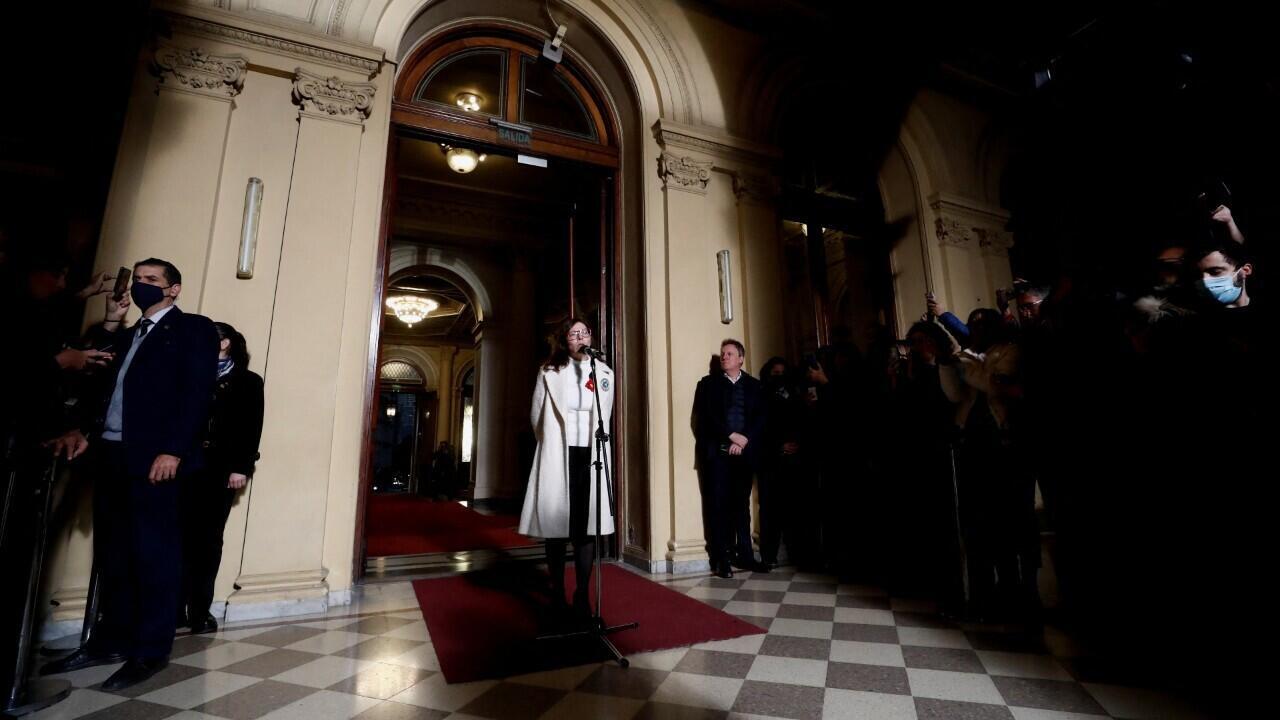First modification:
Leaders of Argentina’s agricultural sector expressed concern about the appointment of an economy minister who has close ties to Vice President Cristina Fernández de Kirchner, who promoted higher agricultural export taxes when she was the country’s president.
The Argentine peso and stock prices fell on Monday after Silvina Batakis was appointed economy minister following the surprise resignation of her predecessor over the weekend at a time when Argentina is facing serious economic problems.
The previous Minister of Economy, Martín Guzmán, was considered a moderate voice within the Cabinet of President Alberto Fernández. Guzmán had come under heavy criticism from the more leftist elements of the governing coalition, including Vice President Cristina Fernández, who is estranged from the president.
The Argentine peso fell 18% on the informal market, reaching 280 per dollar, before recovering at the end of the day. Government bond prices plunged as much as 10%, reflecting fears of inflation, while stocks also fell.
The volatility of the peso forces Argentines to save in US dollars and for the exchange rate to be closely watched as a general barometer of the economy. Several analysts agree that it is too early to say whether the peso is at a new low because trading activity was very light on Monday, indicating that many people may be taking a wait-and-see attitude.

“These are prices that have to be taken with a grain of salt today,” said Gustavo Ber, an economist who heads local consulting firm Estudio Ber. “This is what we expected, a pretty strong reaction from the markets,” said Marcos Buscaglia, an economist who is a partner at local consultancy Alberdi Partners.
Argentines went to stores over the weekend to buy high-value items like refrigerators and ovens. “More inflation is coming,” Buscaglia added, arguing that Batakis’s appointment indicates that the vice president’s left-leaning political preferences are dominating the government.
Fernández was president of Argentina between 2007 and 2015 and has publicly criticized austerity efforts aimed at trying to control inflation.
Guzmán, considered a close ally of the president, resigned on Saturday in a seven-page letter posted on Twitter. In addition to inflation, Batakis must face a huge fiscal deficit and an economy in which about four out of 10 Argentines are poor, while the country experiences a shortage of foreign currency.
Batakis was economy minister for the province of Buenos Aires, the country’s most populous district, between 2011 and 2015 under then-governor Daniel Scioli, who was recently appointed federal production minister.
Now there are fears for the future of the debt renegotiation agreement with the International Monetary Fund to restructure 44,000 million dollars. The International Monetary Fund said it would work with the new finance minister to bolster macroeconomic stability and tackle the country’s “profound challenges.”
“One would expect that the new minister would first try to calm the financial market and then put the macro (economy) in order,” said Matías Carugati, an economist at Consultora Seido. “But it really is difficult to know today if that will happen, considering that we don’t have much information about the government’s plan. They are ensuring continuity with respect to what Guzmán was doing, but it was precisely that plan that led to his resignation.”
Leaders of Argentina’s agricultural sector expressed concern about Batakis’ close ties to Vice President Cristina Fernández de Kirchner, who pushed for higher export taxes on agricultural products when she was president from 2007 to 2015.
with AP














Add Comment